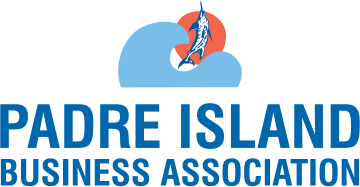A key strategy of scammers is to build trust between themselves and their target. The more
the victim trusts the scammer is legitimate, the more willing they are to divulge personal
information or provide payment. To help establish trust or authority, con artists often
impersonate a wide range of reputable businesses or government agencies through email,
text and phone – even Better Business Bureau (BBB) is not immune from being used.
Impostor scams are becoming the most costly and convincing cons carried out against
businesses and consumers.
From 2020-2022, over two million impostor scam reports to the
FTC have resulted in more than $5.5 billion lost. Reports to BBB demonstrate how this
strategy is successfully used to carry out government grant, employment, phishing and
various other scams. Technological innovations have enabled scammers to create highly
sophisticated lookalike websites, emails and callback numbers designed to increase the
appearance of legitimacy. Impostors often disguise themselves as the fraud department (or
similar title) of a bank, utility company or online marketplace, urging the recipient to follow
a provided link to verify their account details.
“Through education and outreach, consumers can recognize some of the red flags of
traditional fraud,” said Heather Massey, vice president of communications for Better
Business Bureau serving the Heart of Texas. “Many are being more mindful when handing
out their personal information and money. Unfortunately, scammers realize this and are
working even harder to disguise themselves as reputable and well-known businesses or
agencies.”
To help consumers identify between legitimate outreach efforts and impostors, Better
Business Bureau provides an overview of some of the most common impostor scams.
Fraudulent Notices of Account Compromise. These notices may come from any business or internet platform you have an account with.
Banks, utility companies, social media platforms and internet-based companies such as
Amazon and Netflix are commonly impersonated by scammers. Other versions include fake
confirmation emails for an expensive purchase or donation, which direct the user to ‘click
here if you did not make this order.’
To avoid, BBB recommends:
If notified of suspicious account activity, do not follow any links in an email or text.
Instead, log in to your account through a known and trusted method, such as the
company's official app or website.
Be wary of an undue sense of urgency and messages that require immediate action.
While it is important to act quickly in the case of an actual account compromise, try
to remain calm and go through the proper channels to prevent information from
falling into the wrong hands.
Enable multi-factor authentication on your most sensitive accounts to ensure access
cannot be granted if your password or email is compromised.
Impersonated Businesses Offering Fake Job Opportunities
With many companies offering legitimate work-from-home positions, remote working is a
viable option for many job seekers. However, scammers know that these positions are in
high demand, and there is some confusion about how the hiring process for a remote
position typically plays out. Disguised as a hiring manager or recruiter for a well-known
company, scammers send fraudulent job offers to their target, typically for package
reshipment, data entry or secretarial work. Applicants then communicate with the supposed
team through a messaging app, such as Telegram, Zoom or WhatsApp, and submit their
personal or banking information under the assumption it is needed to establish direct
deposit or a background check. Victims of this scam may not receive payment for work
conducted, lose money from an overpaid check scam, or compromise their personal
information leading to identity theft.
To avoid, BBB recommends:
Verify the position is genuine by checking the company's job board on their official
website.
While hiring processes vary, it typically takes a week or longer from the point of
applying for a position to being offered a job and beginning work. Be wary of rushed
or non-existent interviews, immediate offers and communication only through email
or text.
Job seekers often turn to online boards, such as Indeed or Glassdoor, when
searching for new opportunities. Scammers leverage this by claiming they located
your account on these platforms and identified you as ‘a perfect fit for this role.’ Be
cautious whenever you receive a job offer for a position you did not apply for,
especially when it is supposedly coming from a company that is likely to receive
many applicants.
Government Agency Impostors
Almost no government agency is immune from being impersonated by scammers, but some
of the most common organizations used include the IRS, SSA, FBI or Sherriff’s Office.
Contact from an impostor almost always includes using fear tactics, such as the threat of
arrest, lawsuit, fines or effects on your taxes. During extreme weather, scammers may also
impersonate local utility companies, threatening to immediately discontinue service unless
an ‘outstanding bill’ is paid. Regardless of which agency they claim to represent, a common
similarity is that the recipient must take immediate action.
To avoid, BBB recommends:
Understand the debt collection policies for government agencies and what type of
information they will ask for over the phone or through email.
The threat of immediate consequences unless an outstanding bill or ticket is paid in
full is a red flag. Most agencies’ debt collection policies provide payment plans and
the option to appeal the amount owed.
Do not trust caller ID or federal badges as sole proof of legitimacy. Scammers have
been known to spoof numbers and fabricate badges. Verify details of the situation by
contacting the agency directly through its official channels.
For more information about impostor scams, visit BBB.org.
